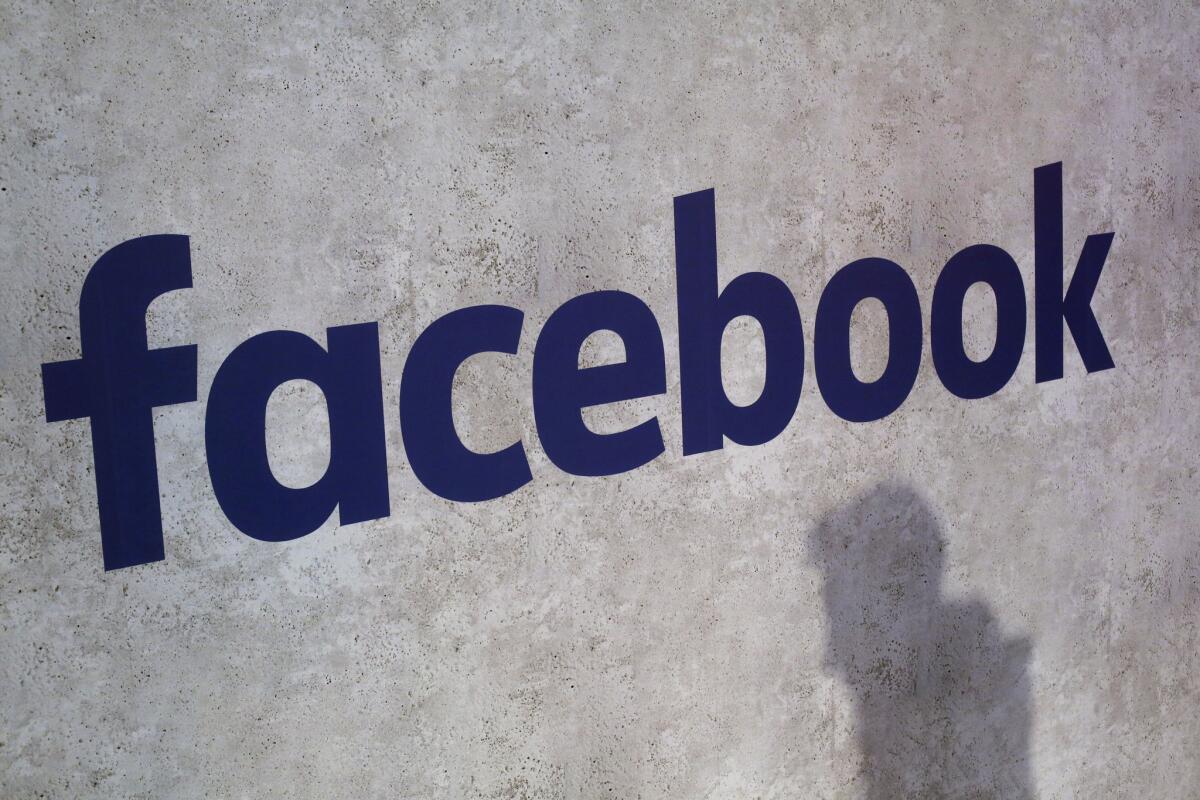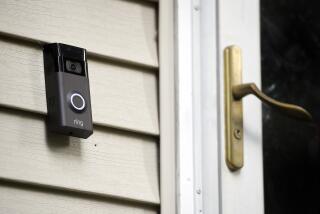U.S. authorities seek access to Facebook encrypted messages

- Share via
U.S. Atty. Gen. William Barr and other U.S., U.K. and Australian officials are pressing Facebook Inc. to give authorities a way to read encrypted messages sent by users, reigniting tensions between tech companies and law enforcement.
Facebook’s WhatsApp already has end-to-end encryption, meaning that even Facebook cannot read the text of messages. Facebook plans to extend that protection to Messenger and Instagram Direct — but the officials will ask Facebook to hold off in an open letter to Facebook Chief Executive Mark Zuckerberg. A copy of the letter, dated Friday, was obtained by the Associated Press.
“Companies should not deliberately design their systems to preclude any form of access to content, even for preventing or investigating the most serious crimes,” the letter says.
While law enforcement wants a way to read messages that’s analogous to wiretaps for phone calls, security experts say giving police such access makes messaging insecure for everyone.
The letter is yet another salvo in the Justice Department’s continuing effort to push technology companies to provide law enforcement with access to encrypted devices and applications during investigations.
Former FBI Director James B. Comey championed the need for law enforcement to find a workaround to encrypted devices and communications. He led a highly publicized push to gain access to an iPhone belonging to a perpetrator of a 2015 terrorist shooting attack in San Bernardino that killed 14 people.
Apple Inc. resisted such efforts and went to court over the FBI’s demand that Apple let the FBI disable security measures that prevent attempts to guess the phone’s passcode. Although the FBI wanted this capability just for the single case, Apple CEO Tim Cook argued that the technique could then be used again on a number of devices and make iPhone users more vulnerable to spies and cyberthieves. The FBI relented after it found another way of getting into the San Bernardino shooter’s phone.
Barr will make the request to Facebook in a letter with U.S. Homeland Security Secretary Kevin McAleenan, U.K. Home Secretary Priti Patel and Australia Home Affairs Minister Peter Dutton. BuzzFeed News reported on the letter earlier.
The growing use of end-to-end encrypted communications has been coined by the Justice Department as the “going dark” problem.
At a cybersecurity conference this summer, Barr gave lengthy comments on what he described as a dangerous increase in device encryption. He specifically detailed the use of WhatsApp group chat by a drug cartel to coordinate the murders of Mexico-based police officials.
Facebook said Thursday that people have the right to have a private conversation online and that companies already can respond to government agencies when they receive valid legal requests. “We strongly oppose government attempts to build back doors because they would undermine the privacy and security of people everywhere,“ Facebook spokesman Joe Osborne said in a statement.
In announcing plans in March to expand encryption, Zuckerberg acknowledged that the privacy protection it affords extends to “the privacy of people doing bad things.” He said Facebook was working on better ways to detect patterns of bad behavior, without seeing contents of messages.






